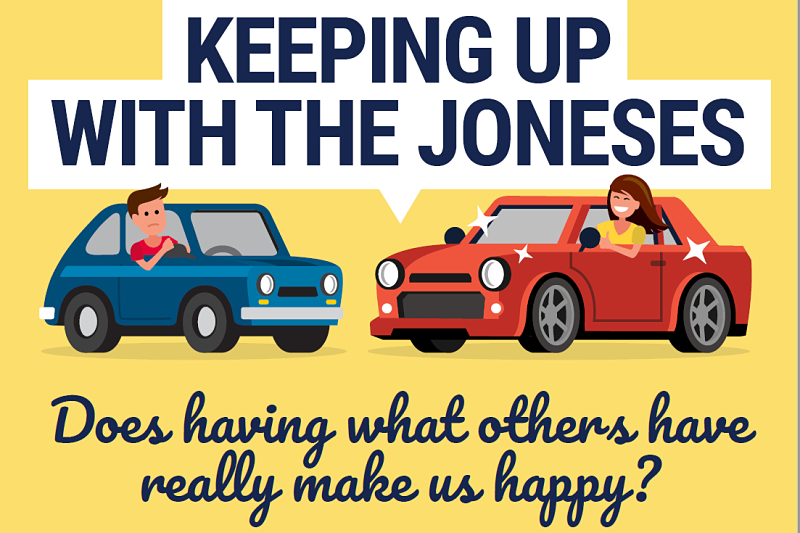
Cambridge dictionary defines ‘Keeping up with the Joneses’ as “to always want to own the same expensive objects and do the same things as your friends or neighbours, because you are worried about seeming less important socially than they are.”
Keeping up with the Joneses’ isn’t a new thing – the term was coined in 1913! However, with the rise of social media, it is more prevalent than ever before.
The rise of social media was intended to help people make more connections, which would benefit their social and professional lives. However, in the process it has also caused a fair share of problems, such as comparing your quality of life to others, whether that be comparing things you own or experiences you have had.
Shepherds Friendly carried out a survey of 2,000 respondents asking how their family and friends impact their spending habits and whether keeping up with the Joneses is affecting our happiness.
The results of the survey found:
- 52% of people admitted they had compared their financial situation to that of their friends and family
- 30% of people admitted they had been tempted to buy something because a friend or family member had done so
- 9% of people admitted they had bought something they couldn’t afford specifically to impress a friend or family member.
Is keeping up with the Joneses making you happy or causing you to have financial difficulties? Discover ways to stop wanting to keep up with the Joneses in the infographic below.

Embed our infographic using the code below:
Text version:Keeping up with the Joneses: Does having what others have really make us happy?
Cambridge dictionary definition:
To always want to own the same expensive objects and do the same things as your friends or neighbours, because you are worried about seeming less important socially than they are.
Shepherds Friendly carried out a survey of 2,000 respondents asking how their family and friends impact their spending habits.
The results found:
- 52% of people admitted they had compared their financial situation to that of their friends and family
- 30% of people admitted they had been temped to buy something because a friend or family member had done so
- 9% of people admitted they had bought something they couldn’t afford specifically to impress a friend or family member
Keeping up with the Joneses isn’t a new thing – the term was coined in 1913! However, with the rise of social media, it is more prevalent than ever before.
What makes us feel successful?
Shepherds Friendly survey asked which of the following would make respondents feel successful?
Emotional
Achieving personal goals: 49%
Having a job I enjoy: 46%
Having a family: 41%
Material
Owning a home: 49%
Easily afford a holiday: 47%
Owning expensive items: 13%
Feelings of success can be both emotional and material. Setting emotional goals that are personal to you can help you to feel more successful.
Is keeping up with the Joneses making us happy?
In general, which one of the following best describes how you currently feel about your current financial situation?
- Comfortable
- Calm
- Anxious
- Stressed
- Depressed
- Happy
- None of these
- Don’t know
- Prefer not to say
How we feel about our financial situation
We can all feel differently about our financial situation. Shepherds Friendly’s survey found that 28% described their feelings about their financial situation as comfortable, 18% as calm and 8% as happy.
However, 18% of people feel anxious about their financial situation, 9% stressed and 8% depressed.
How to stop wanting to ‘keep up with the Joneses’
If you feel like you are tired of trying to ‘keep up with the Joneses’, try these tips below.
- Stop comparing yourself to others
Remember, you don’t know their full story and they could be living beyond their means. We are all different and we should celebrate that. - Learn to budget
No matter how much you earn, it’s important to spend less than you have coming in. Track your spending to work out where your money is going – could you make some changes? - Find your happy
If you feel like you’re buying things for instant, short spurts of happiness, it is important you realise that material possessions tend to produce short-term happiness, while relationships have longer-term effects of fulfilment. Put your energy into your relationships and notice how different you feel.
Spend some time contemplating ‘what is enough?’
Instead of trying to keep up with Joneses, set yourself personal goals in order to feel a sense of achievement.


